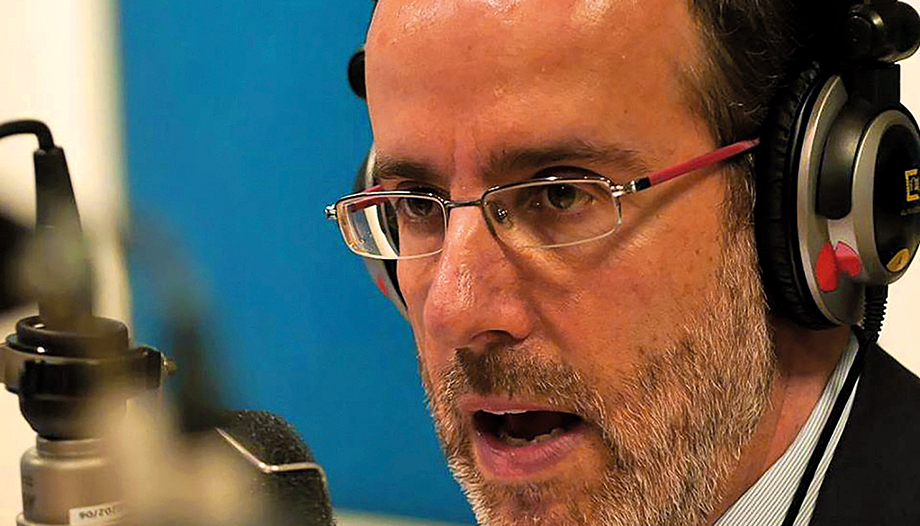A Spanish professor, the father of university studies on journalism, the late Alfonso Nieto, used to say that "good humor has been robbed of time and space" and that "one of the most serious things in life is to smile.". It is remarkable how many years later he has been prophetic in this area as well. It is not by chance that Pope Francis often refers to this "prophecy".medicine"of the heart to address the numerous "crisis"We wanted to explore these themes with Fabio Colagrande, who has been with Vatican Radio for years. We wanted to explore these themes with Fabio Colagrande, who has been with Vatican Radio for years, and who in his "free time" explores these aspects in depth.
In an excerpt from the Apostolic Exhortation Gaudete et ExsultatePope Francis says that a saint is one who is capable of living "...".with joy and a sense of humor". How important is it to rediscover this value in the life of every baptized person?
-I believe that it is not only important, but urgent at this moment in the history of the Church. Humor, as the Pope points out, is in fact a great spiritual virtue that is a sign of detachment from material things and at the same time, as the etymological root shows, it is also a sign of the need to be detached from material things. humusa manifestation of humility. The lack of a sense of humor is an alarming symptom of how our life of faith has dried up. A self-referential and clerical Church, affected by what the Pope calls "a lack of a sense of humor".spiritual worldliness"It is a Church that takes itself too seriously and is incapable of self-criticism.
We tend to dedicate our free time to frivolous and essentially "light" pastimes, but on the web we find hard and angry attitudes. How can this happen?
-I am not a psychologist, nor an expert in social networks, but I believe that social networks have become a place to vent our frustrations and neuroses. They are at our fingertips, in the smartphones that we always carry in our pockets, and we often populate them with posts and comments that express our discomfort, our dissatisfaction, our difficulty in relating to others. We need more self-discipline. We should limit their use and improve the quality of the time we spend on social networks. They are important opportunities for growth and knowledge, but only if they are used with discernment.
We come from two years of great suffering that have also affected our souls, sowing an almost generalized feeling of frustration and despair: can humor be a medicine also in this case?
Humor, as I said before, helps to develop a healthy self-irony and to know how to smile kindly at our weaknesses. Of course, it should not become destructive sarcasm, because then it only expresses negativity. It can be a medicine because it helps to live more lightly. It can be an opportunity to look at the world from a new perspective. And then I think it is necessary for those who believe in the transcendent and know that the visible is only a part of our lives. It helps to de-emphasize it and focus on the essential.
He has recently published a book in which he "makes fun" of some "tics"of Christian belonging: where does the idea come from and why is it important in the Church not to take oneself too seriously?
-After so many years of experience as a Catholic and Vatican journalist, I felt the need for a kind of "catharsis. That is to say, I wanted to go beyond all the problems of pastoral and ecclesial communication that I have witnessed, inviting myself and others to look almost with affection at certain limits of our life of faith. The occasion of the pandemic and the challenges it has generated seemed to me a propitious occasion. So I tried to tell the story of an imaginary diocese facing the need to transform this time of crisis into a time of renewal. I created characters that embodied our contradictions, our weaknesses, and I tried, through paradox, irony and a surrealistic style, to make funny and amusing certain ecclesial limitations with which we are forced to deal daily.
Chesterton explained that angels can fly "because they take it lightly". Is there hope for us too?
-Paraphrasing Cicero, I would say that as long as we have faith we will always have hope. To strive every day to believe in God's mercy, to feel loved by Him in our frailties, is an excellent way of not becoming discouraged and of learning to fly. Although perhaps it would be better to wear a helmet...












